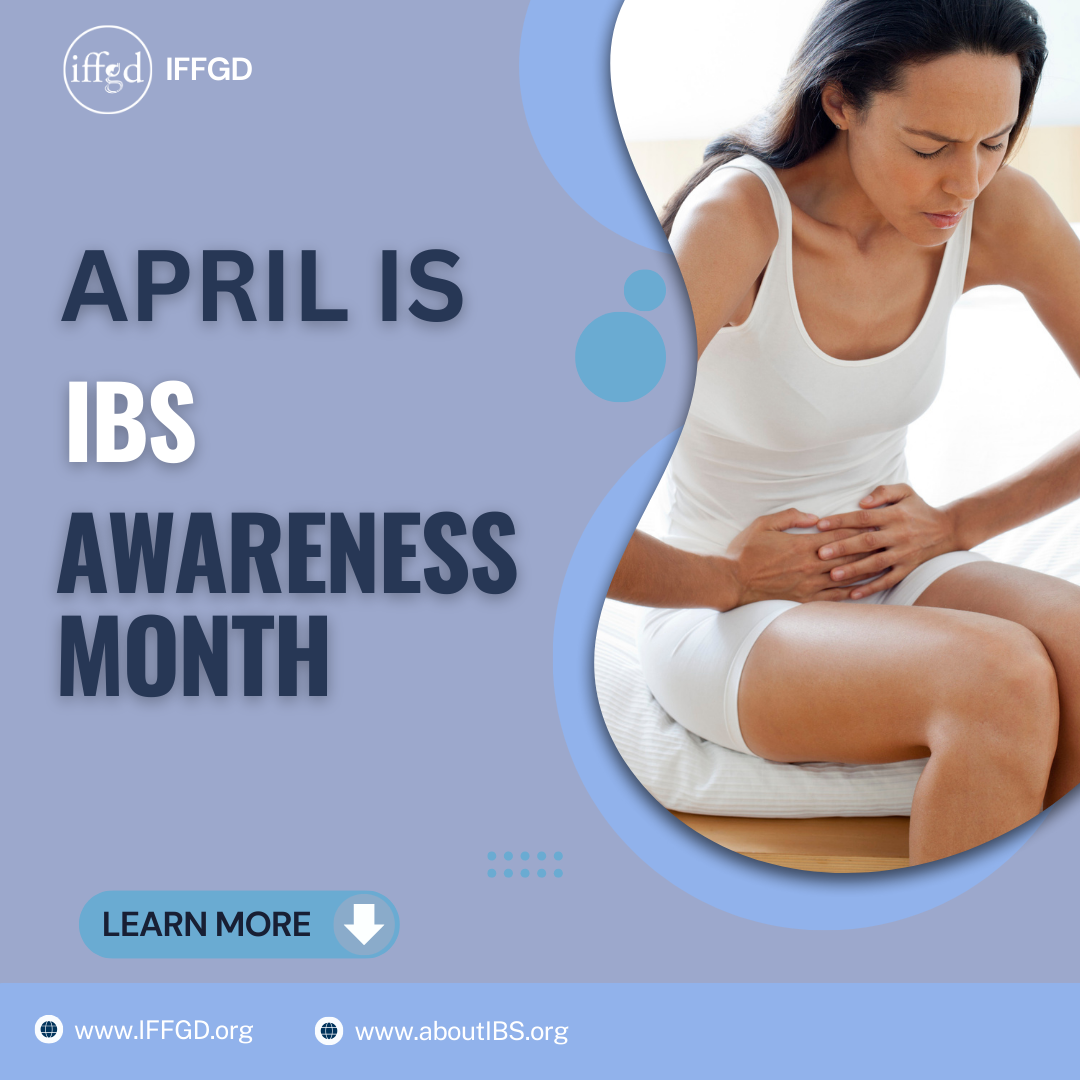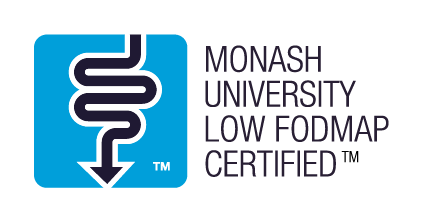April is Irritable Bowel Syndrome (IBS) Awareness month, an action month created by the International Foundation for Functional Gastrointestinal Disorders to raise awareness about what it is, what’s new in research and how you can get involved to join in on the conversation too.
What is IBS?
IBS is a chronic functional bowel disorder with a collection of symptoms, such as abdominal pain and discomfort, without the presence of abnormal pathology1. It affects 1 in 7 adults worldwide2 with women three times more likely to experience IBS symptoms compared to men, often exacerbated during that time of the month or in times of high stress. Risk factors for the syndrome include being of younger age and previous gastrointestinal infections3.
IBS can be subcategorised into different types e.g.
- IBS with Constipation (hard stools most of the time or loose stools less than 25% of the time), commonly present in women
- IBS with Diarrhoea (loose stools most of the time or hard stools less than 25% of the time), commonly present in men
- IBS with Alternating Constipation and Diarrhoea (both hard and soft more than 25% of the time).
- Post Infectious IBS (a nonspecific response to infection caused by pathogens)4-6
- Post-diverticulitis IBS (characterised by diverticular-related visceral hypersensitivity, changed microbiota similar to IBS following acute diverticulitis)7
Individuals with IBS often have symptoms that overlap between subcategories meaning they can switch from one to the other8
Symptoms
While some people experience only mild to moderate symptoms, others can experience debilitating symptoms which for some largely affect their quality of life. Common symptoms include abdominal pain and discomfort, bloating, diarrhoea and constipation, however, not all symptoms are gastrointestinal and fatigue is very common. These symptoms can coexist with other symptoms affecting the body (e.g. pain, overactive bladder), affecting the mind (e.g. depression and anxiety) or pain affecting the inner organs (e.g. visceral hypersensitivity).
Diagnosis
Despite affecting a large proportion of the population, only a small number of people seek medical attention for IBS symptoms9 and often go unaware or undiagnosed. Diagnosis is determined by a health professional following the elimination of other similar conditions (e.g. Coeliac disease, Crohn's Disease and bowel cancer) using a diagnostic criterion or based on whether you have typical symptoms10.
Pathogenesis
Several studies have investigated the pathogenesis (or origins story) of the syndrome however it is currently not understood. Several theories of the cause include; alterations in inner organ sensitivity, brain alterations, bowel movements, secretory abnormalities, microbial imbalance, nerve sensitization, altered gene profiles the list goes on3. Good news is, research into IBS has advanced significantly in the past decade with new discoveries every day.
Management
Management of IBS symptoms involves a combined approach which depends largely on the individual. Ranging from a confident relationship between patient and provider, behavioural (e.g. exercise) and psychological treatment (e.g. mindfulness) to dietary changes.
Knowing what to eat can be a big battle for some with certain types of food exacerbating symptoms or leading to fear of the onset of symptoms. Elimination diets are often used to remove the common triggers of symptoms, some patients suggest reducing wheat, dairy products, eggs, coffee, yeast, citrus fruits are helpful11 but following such a restricted diet can be difficult.
Fibre and fibre-supplements help add bulk to stools, increasing stool frequency that helps with chronic constipation faced by IBS-C sufferers. The size of meals and speed of eating can also affect symptoms, therefore, eating smaller portions more regularly and chewing slowly could also help over time. Mindful eating has been also suggested to bring back the healthy relationship between food after dietary restrictions12 for more about what mindful eating is and how to try it for yourself, check out our post on it here.
75% of those experiencing IBS symptoms often find relief following a low FODMAP diet with guidance from an experienced dietitian2. FODMAPs are a collection of fermentable carbohydrates (Fermentable Oligosaccharides, Disaccharides, Monosaccharides and Polyols) that are poorly absorbed in the small intestine, causing diarrhoea in some, whilst others experience flatulence and abdominal discomfort caused by bacterial fermentation in the large intestine.
The low FODMAP can be a tricky one to navigate, and one that should be followed with the guidance of a healthcare professional like your doctor or an Accredited Dietitian. For more information about FODMAPS, check out our post here.

Although IBS is complex with no known treatment currently, not all is lost as symptoms can be managed so you can have more time for life. For more information on how IBS and how to manage it, head here.
References
Gut Foundation. Irritable Bowel Syndrom Info Factsheet. Viewed 23 April 2018 < http://www.gutfoundation.com.au/blog/irritable-bowel-syndrome-info> Monash University. Are you suffering from IBS? Fact Sheet. Viewed 23 April 2018 https://www.monashfodmap.com/ Enck et al. Irritable Bowel Syndrome. Nat Rev Dis Primers 2016;2: 16014 Gwee et al. Increased rectal mucosal expression of interleukin 1β in recently acquired postinfectious irritable bowel syndrome, Gut 2003 52(4): 523-6Spiller, Jenkins, Thornley. Increased rectal mucosal enteroendocrine cells, T lymphocytes and increased gut permeability following acute Campylobacter enteritis and in post-dysenteric irritable bowel syndrome. Gut 2000; 47(6): 804-811Wang, Fang, Pan. Bacillary dysentery as a causative factor of irritable bowel syndrome and its pathogenesis. Gut 2004 53(8): 1096-101Cohen et al., Increased risk for Irritable Bowel Syndrome after acute diverticulitis. Clin Gastroenterol Hepatol. 2013 11(12): 1614 – 1619.Olafsdottir LB, Gudjonsson H, Jonsdottir HH, Thjodleifsson B. Stability of the irritable bowel syndrome and subgroups as measured by three diagnostic criteria — a 10-year follow-up study. Aliment. Pharmacol. Ther. 2010;32:670–680Halpert, Irritable Bowel Syndrome: Patient-Provider Interaction and Patient Education. J Clin Med. 2018 7(1):3Irritable Bowel Syndrome.net. New Rome IV Diagnostic Criteria for IBS, viewed 23 April 2018 https://irritablebowelsyndrome.net/clinical/new-rome-iv-diagnostic-criteria/Lea R, Whorwell P. The role of food intolerance in irritable bowel syndrome. Gastroenterol Clin North m. 2005;34:247-255National Institute of Health and Care Excellence. CG61 Irritable bowel syndrome in adults: diagnosis and management of irritable bowel syndrome in primary care. NICE. 2008 [online], http://www.nice.org.uk/guidance/cg61/documents.









